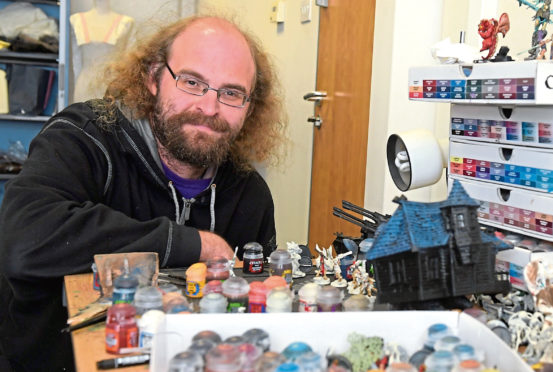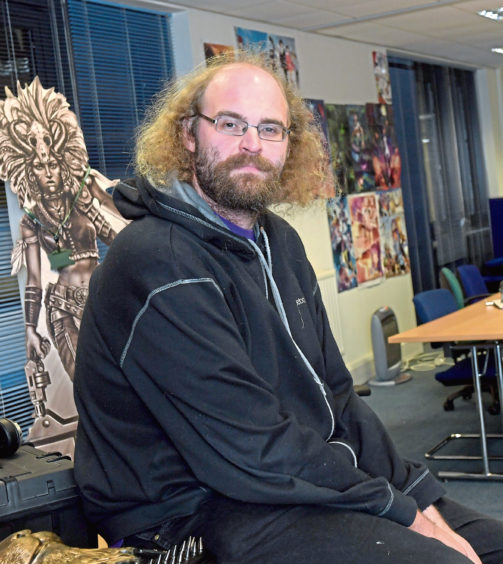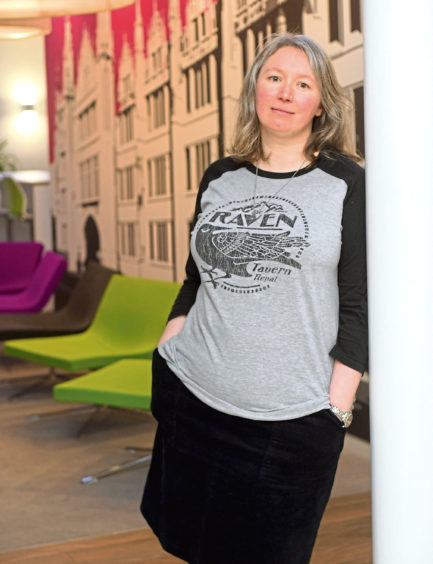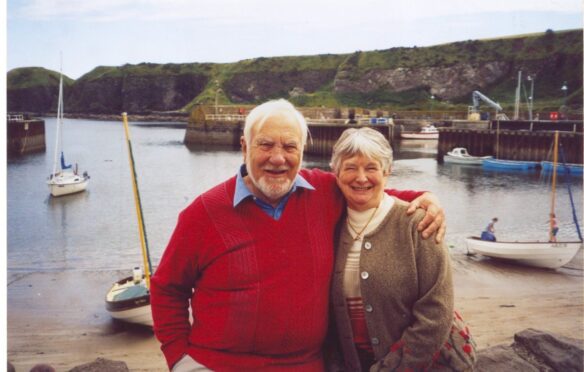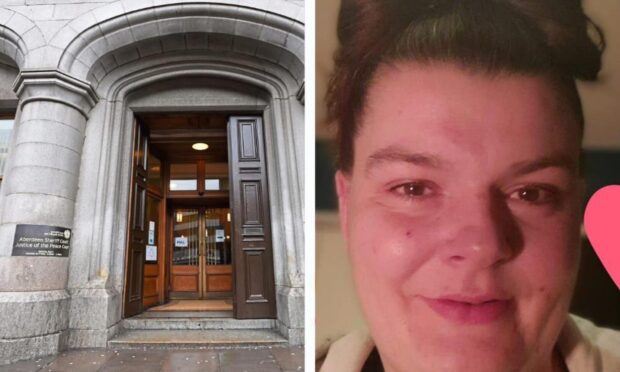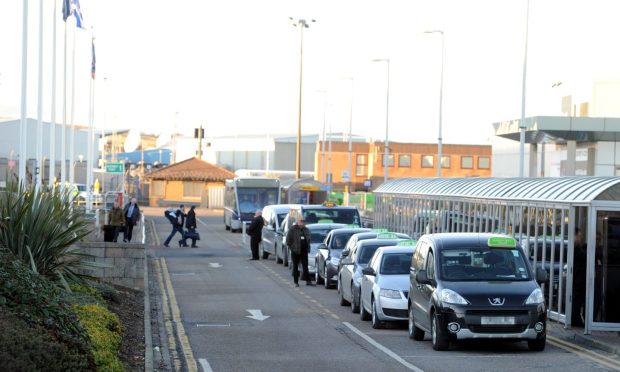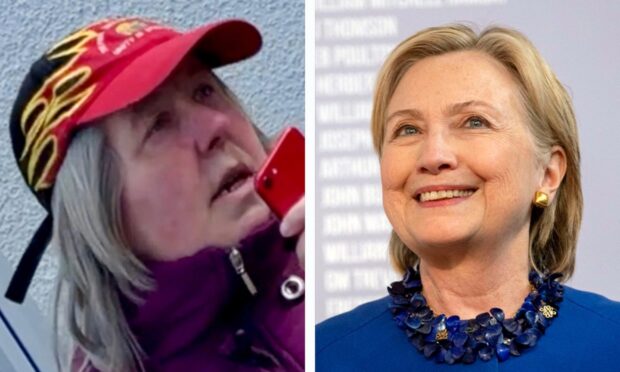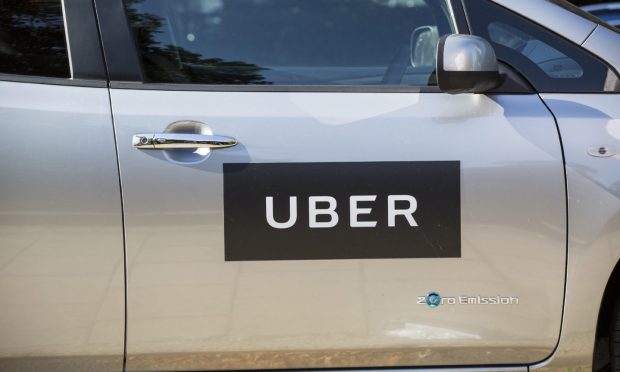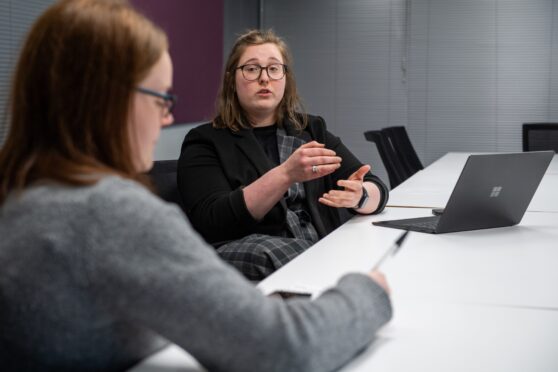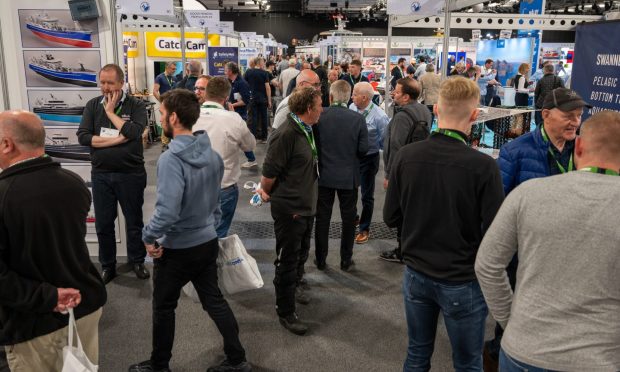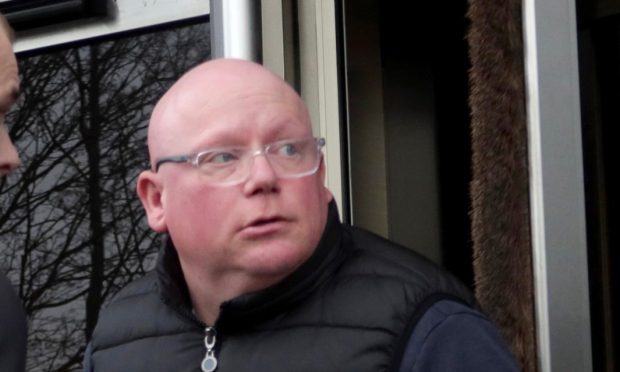At almost seven feet tall, it is difficult for Alastair Meek to slip by unnoticed.
On his own admission, he’d much rather blend into the background– having spent his early childhood in silence.
“I didn’t speak until I was four years old,” he says, matter of fact.
“I only said my first words because I wanted to correct somebody.”
To spend an hour with Alastair is to have an education, for he is a passionate problem solver.
He is always “looking for answers”, and takes an analytical view of the world.
Alastair has also provided hope to dozens of people in Aberdeen, as manager of Triple A’s.
The charity is the only one of its kind in the north-east; run by autists, solely for autists.
This means all contact staff and volunteers are autistic.
Environmental activist Greta Thunberg spoke out after critics zoned in on the fact that the teenager has Asperger’s syndrome, meaning she is on the autistic spectrum.
“I have Asperger’s and that means I’m sometimes a bit different from the norm,” she said on Twitter, to an audience of three million followers.
“And – given the right circumstances – being different is a superpower.”
TV presenter and naturalist Chris Packham, CBE, also has Asperger’s, while food writer and campaigner Jack Monroe has written about her own diagnosis.
Autism was once considered a rare and severe disability, after Leo Kanner claimed to have discovered autism in the US in the late 1940s.
Kanner said autism was characterised by repetitive movement, little or no speech and high support needs.
Although this theory has long since been discredited to some extent, many autists believe stereotyping still prevails.
“Autism is not a disease, we are not Sheldon Cooper or Rain Man,” says Alastair.
“We aren’t stupid, or slow, or less capable than you are.
“But we get treated that way because of people who think that doing so will make things easier.
“It doesn’t.”
According to the National Autistic Society, just over 1% of the population is autistic – although other estimates are higher.
Alastair believes the autistic community can be largely ignored, and hopes Triple A’s goes some way to lessening the isolation which autists can experience.
“Triple A’s has been a charity for the last six years, but it started off as a six-week programme,” he says.
“There is so much stereotyping about autism.
“People think we can’t process things or we have no empathy.
“It comes from this misunderstanding, this belief – that people who have autism are broken.
“We have about 70 members across Aberdeen and the shire.”
The group is based at The Innovation Park in Bridge of Don, and is open Monday to Thursday, 12pm to 8pm, with groups also on offer on Friday and at the weekend.
“We provide people with autism a place where we can interact with others, in a way that is reasonably natural,” explains Alastair.
“We do not sit people in assigned seats with prescribed activities.
“It’s member led, so we’ve got some gaming groups, anime, cosplay and creative groups.
“We are competent and capable humans, so we refuse to bubble wrap at Triple A’s.
“We also offer a social setting free from judgement, because this is an environment where autism isn’t a stigma.”
Alastair was diagnosed autistic when he was 14 years old, and delayed going to university due to the social aspect.
“University would have been difficult socially if I had gone at 18,” he says.
“I was having to develop all these social processes.
“Things like vocal tone and hand motion.
“I had to learn eye contact.
“I find conversation exhausting, because eye contact is surprisingly complex.
“Imagine you were sitting a really difficult exam, that’s how hard socialising can be.
“I am hypertactile, so I find soft touch painful.
“This means the world can be terrifying.
“You know that feeling when you’ve got sunburn, and clothes touch your skin.
“It’s painful, that’s my level of discomfort all the time.”
Despite the many challenges, Alastair believes autism should not be viewed in a negative light.
“Autists are not doomed,” he says.
“I don’t want to paint this picture of autism as a negative thing.
“It is an important part of me, but it is not a blessing or inherently a curse.
“It is just a thing.
“For some people, it can be more disabling.
“I am never going to say I understand someone’s autism when I first meet them.
“Nor am I am going to think they are strange.
“I think parents can take a different view because they’re constantly told about the many things their child won’t be able to do.
“Many – if not most – of us get treated like children or worse because of our diagnosis, and the truth is that while there are things that might make our lives easier, unless you have been asked to do it, it is better to treat us like anyone else.”
Former teacher Marion McLaughlin echoes this sentiment, having founded the first autistic pride event in Aberdeen.
Now in its second year, the most recent event included an art exhibition held at Union Square, with all work produced by autists.
“It is a common misconception that people who are autistic are not creative,” says Marion.
“Autism can actually be awesome.
“There needs to be positive role models for both children and adults who have been diagnosed, so they can begin to feel more confident in their identity.”
Marion believes she spent her entire life hiding autistic traits, and was only told she is autistic two years ago.
The diagnosis came as a relief, and confirmed what Marion already suspected.
“I’ve spent 30 odd years masking it,” she says. “I didn’t really fit in, the signs were always there.”
Marion now runs One Stop Shop Aberdeen, which works in partnership with Triple A’s.
It offers a signposting service to autists, families and friends, and anyone interested in autism, acting as a guide to information, services, groups and charities in the local area.
Marion can provide a rare insight for parents in particular, both as an autist and mother to her young son, Fraser, who was diagnosed with autism just before he turned four.
“I started to notice a few things when Fraser was about six months old,” recalls Marion.
“His eye contact was different, and he didn’t always respond to his name.
“There was something quite different about him.
“Autism just is; it makes some things easier and some things harder.
“Autism impacts on every single aspect of my life all the time; sometimes in a great way.
“I can feel soft touch in particular, long after it has occurred.
“So when my son hugs me, I can still be feeling it an hour later.
“How amazing is that?
“Autism isn’t something to be overcome.
“We can succeed because we are autistic, not in spite of.”
Ellie’s story
Fellow mum Lyndsay Woolridge has felt judged when out and about with her daughter, Ellie, who was diagnosed with non-verbal autism when she was three and a half.
With her seventh birthday rapidly approaching, Ellie is now flourishing at Carronhill School in Stonehaven, which is a school for pupils with special needs.
It has been a difficult journey for Lyndsay, who is a self-employed massage therapist.
“When Ellie was diagnosed, I cried,” says Lyndsay.
“Partly from relief, but also because I didn’t know what the future held. I was sad because I knew autism had this stigma attached to it.
“I was devastated for her.
“I have nothing but positive things to say about our experience though.
“I had two miscarriages before I had Ellie.
“I’m so grateful to have her, we have been given this child with a gift.
“So why not embrace it?
“Her older brother, Daniel, is dead proud of the fact she is different.
“Ellie’s diagnosis has changed my outlook on life.
“We celebrate every achievement, however small it might seem.
“We appreciate everything.
“We had an early diagnosis, as both Ellie’s health visitor and her key worker at nursery were phenomenal.
“I knew as a mum that something wasn’t right, because Ellie wasn’t engaging.
“She wasn’t speaking, it was a bit surreal.
“Ellie has always been included and invited to birthday parties.
“Even though she can’t go because it would be too overwhelming, it shows that other parents think about her.
“When we are out in public, people can stare if she is having a meltdown.
“I used to apologise, but I don’t care anymore.
“They can stare if they want.
“I used to feel like I had to explain myself.
“She has a T-shirt which says ‘I get flappy when I’m happy’.
“Ellie is very independent, she has already achieved so much.
“She takes melatonin otherwise she wouldn’t sleep, as her mind is running constantly.
“She has no sense of danger and she is too trusting.
“So of course I’m frightened for the future.
“But my daughter astounds me every single day, we don’t take anything for granted.”
What is autism?
Autists see, hear and feel the world differently to other people.
In particular, understanding and relating to other people, and participating in everyday family, school, work and social life can be harder. The exact cause of autism is still being investigated.
